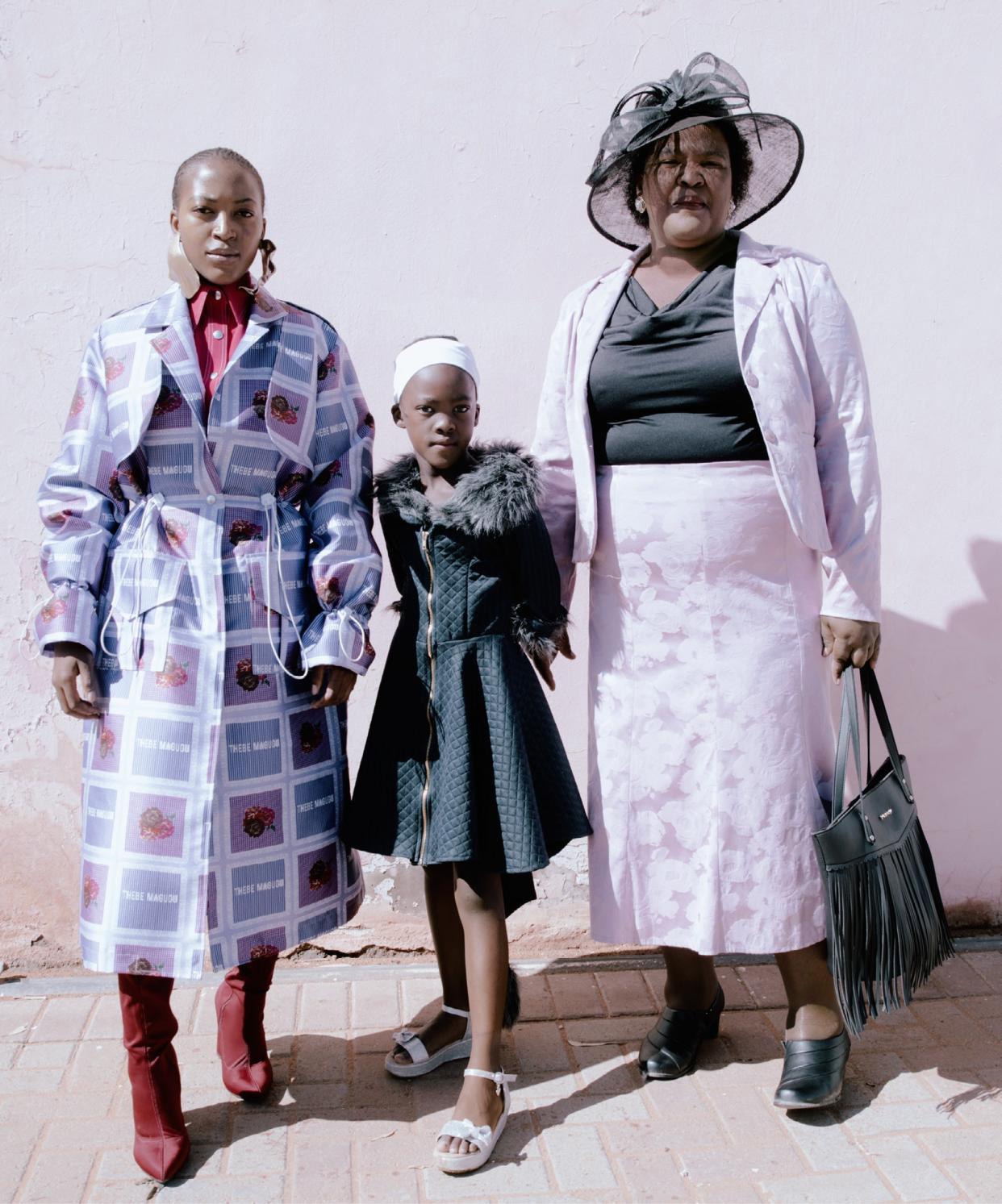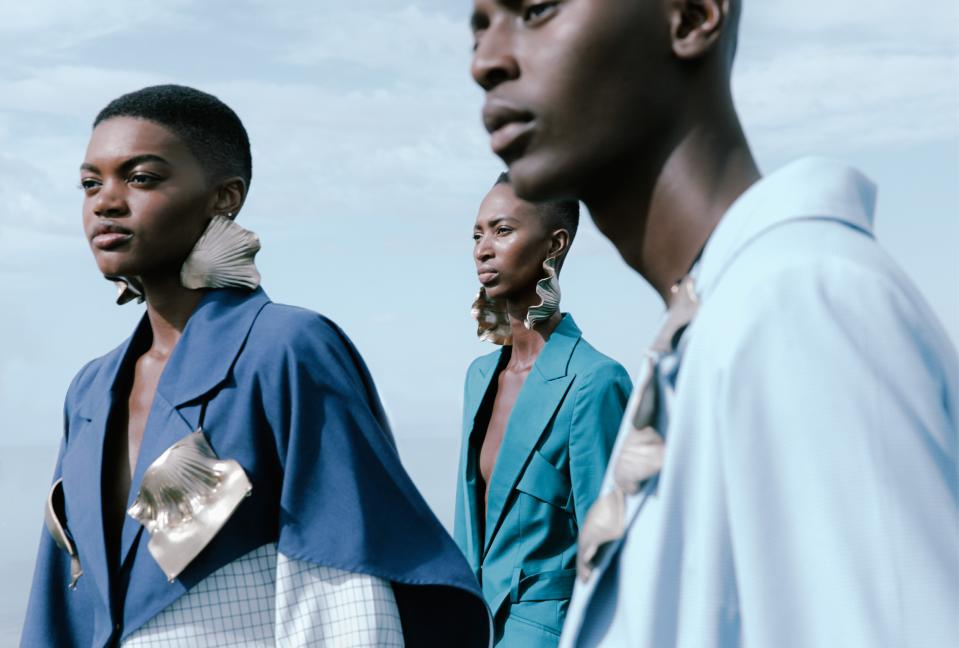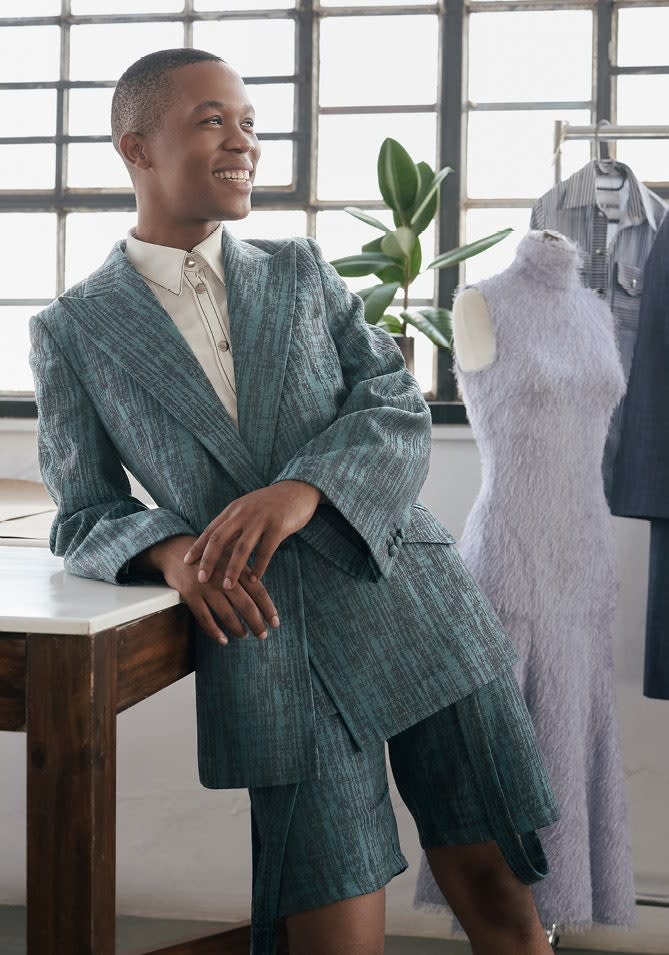South African Designer Thebe Magugu Has Found His Voice—And The Fashion World Is Listening

Growing up in small-town South Africa in the early aughts, Thebe Magugu spent his childhood dreaming of elsewhere. Huddled in front of the satellite television in his mother’s living room, he was mesmerized as an eight-year-old boy by runway shows broadcast from Paris and New York. Even so, it was in Ipopeng, a township on the outskirts of Kimberley, in the Northern Cape province, where the 26-year-old designer was born, that his keenest fashion instincts were formed. Though unassuming in appearance, the place is auspicious by name—Ipopeng means “to beautify oneself” in Setswana, a language of the Tswana people spoken across southern Africa. “There’s this narrative around small towns being backward that’s so negative and one-sided,” says Magugu, who in his late teens moved to Johannesburg, where he attended the Leaders in the Science of Fashion school. “It wasn’t until I left that I felt this yearning to go back and showcase the beautiful side.”

Magugu’s latest collection is a life-affirming tribute to his hometown. Guests who attended the debut presentation for his eponymous label at the Palais de Tokyo in Paris this past February were greeted by a series of large-scale portraits of the township and its people, captured by South African photographer Kristin-Lee Moolman and Sierra Leone–born stylist Ibrahim Kamara. In a photograph in one corner of the gallery, a group of schoolgirls was gathered, dressed in smart blue-and-white uniforms to echo the designer’s crisp shirting looks. In another, his childhood friend Bernelee Ndubula was photographed donning Magugu’s take on Sunday best—a striking retro floral trench coat inspired by his grandmother’s kitchen tablecloth. “I remember hearing the church bells and watching the women pass by in their pleated skirts,” says Magugu. “These were my earliest references.” Several other subtle nods to everyday life were threaded through the collection, including a photo print of his aunt’s corrugated-iron roof, cleverly abstracted to look like distressed denim, on an ostrich-feather-trimmed button-down and cropped trousers.

In addition to telling a very personal story, Magugu’s clothes are a form of social commentary that speaks to the changing landscape of post-apartheid South Africa. One illustration on a polo shirt, of two black women consoling each other, stands out in particular: As the designer explains, the print was made in collaboration with Johannesburg-based artist Phathu Nembilwi as a political statement about the country’s rising femicide rate. “Clothing is a way that I can engage with the issues that are close to my heart, close to what’s happening, and close to my country,” Magugu says. He pays homage to the sartorial traditions of his ancestors, too: The distinctive Basotho blanket worn by the Sotho people is reimagined on a blue poncho; the swirling motif on an asymmetric skirt is hand-painted with terra-cotta-colored mud formulated by a local healer. “All of these traditional visual cues were erased or stifled during apartheid,” he says. “I think it’s so important to celebrate that heritage in a way that can live in the modern world and preserve the craft so that it’s not lost.”
That soulful and considered approach to making fashion caught the world’s attention last fall, when Magugu was awarded the prestigious 2019 LVMH prize, the first African designer to win in the competition’s seven-year history. He’s now using his newfound global platform to shine a light on the burgeoning creative industry bubbling up at his front door. “I think people assumed I would just move my production to Europe because it would be easier—but how could I lament the brain drain in my country if I up and leave?” says Magugu, who relies on factories and artisans based in Johannesburg and Cape Town to make his collections. “I’m committed to being here, regardless of the challenges. I’m just happiest when I’m home.”
Originally Appeared on Vogue

 Yahoo Movies
Yahoo Movies 
